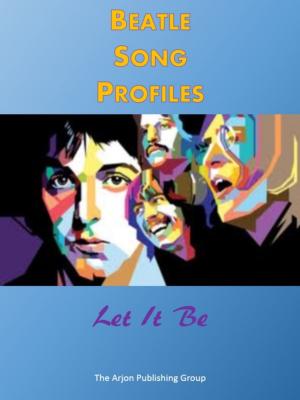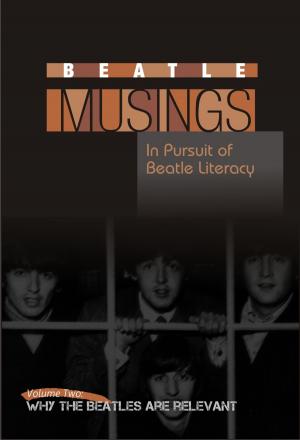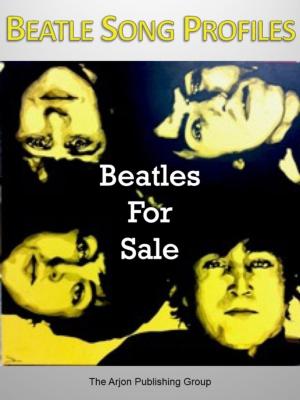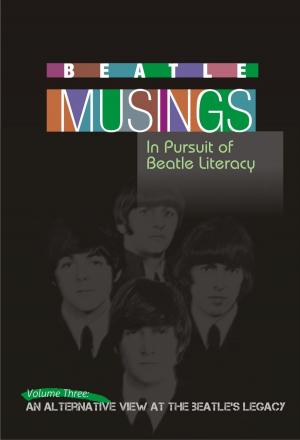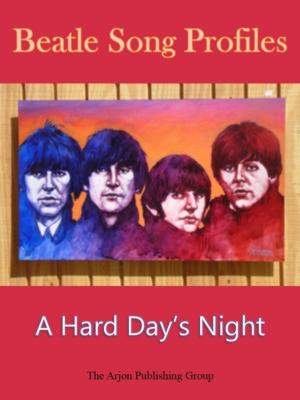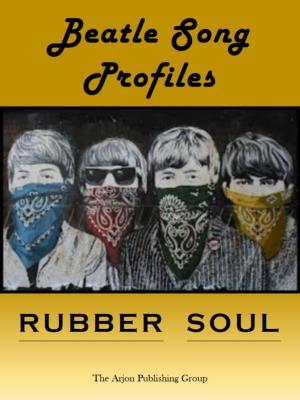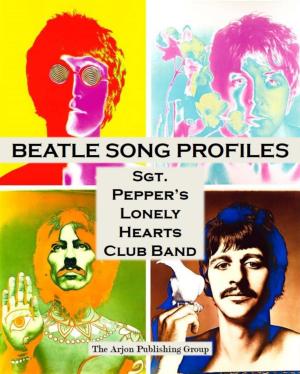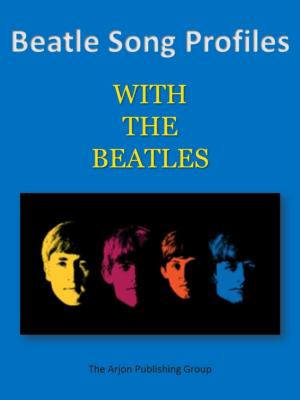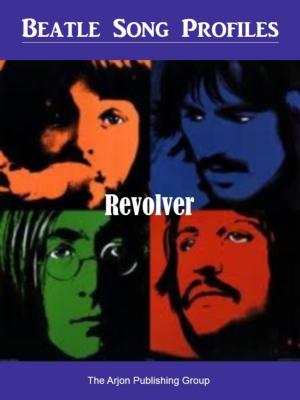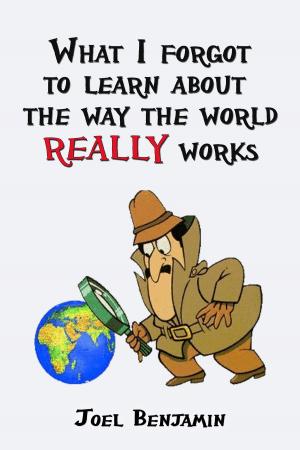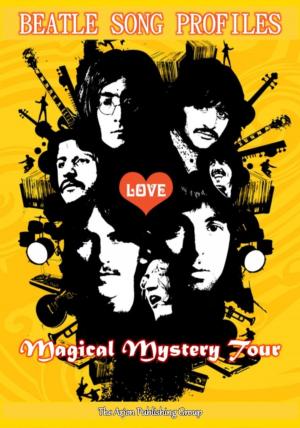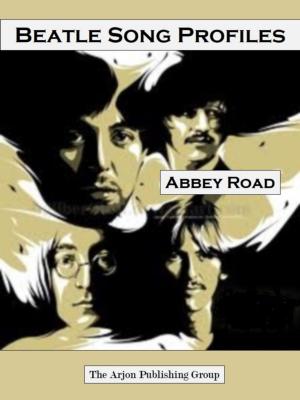Beatle Song Profiles: Please Please Me
Nonfiction, Entertainment, Music, Business & Technical, Songwriting, Instruments & Instruction, Songbooks| Author: | Joel Benjamin | ISBN: | 1230000147224 |
| Publisher: | Arjon Publishing | Publication: | August 15, 2012 |
| Imprint: | Language: | English |
| Author: | Joel Benjamin |
| ISBN: | 1230000147224 |
| Publisher: | Arjon Publishing |
| Publication: | August 15, 2012 |
| Imprint: | |
| Language: | English |
Each of the 13 songs from Please Please Me and three assorted singles are “profiled” in this volume of Beatle Song Profiles.
Beatle Song Profiles are concise commentaries on every Beatle song. The song profiles describe the song’s origins and inspiration, what The Beatles themselves said about it, what was unique about the music and/or production of the arrangement or vocals, and the deeper meaning of the lyrics.
Beatle Song Profiles is a unique educational tool to enable readers to learn about every song on all 12 albums The Beatles recorded.
Sample song profile from Please Please Me
I Want To Hold Your Hand
I Want To Hold Your Hand was one of the first songs where the Beatles experimented with organ sounding guitars. This was achieved by extreme compression on Lennon’s rhythm guitar. It was also their first use of a four track recorder in the studio which allowed them much more flexibility than the old two-track machine by being able to record the instruments separately onto more tracks.
Lennon recalls the origins of the song:
“It sprang into being when, having come up with an opening line, Paul hit a chord on the piano. I turned to him and said, That’s it! Do that again! In those days, we really used to absolutely write like that- both playing into each other’s noses.”
Although there is no actual voice solo, John is the lead vocalist as he sings the tune proper while Paul signs harmony just above him. The result is that they sang as a duet and was one of their first examples of their unique “vocal counterpoint” style.
Says music critic Al Bargar:
“I Want To Hold Your Hand" is exactly what the Beatles’ original marketing campaign required: catchy, unique and personally expressive. From the little pairs of Buddy Holly handclaps to the mounting vocal harmonic tension in successive I can't hides, to the payoff harmony on HAAAAAAND, to the half time guitar chords that give it an actual ending.”
It’s not just happy and joyful- and leads to an inspiring, enchanting experience with its boosted bass and George’s grinding lead rhythm guitar and emotional climaxes. At this point in their career The Beatles were okay with bland lyrics as the words were not chosen for meaning- but because they fit in with the overall sound of the track. They were more interested in the record than the song- not to form- but spirit.
The story of the song portrays a love relationship that doesn’t relate to one particular lover- but to the idea of all what love can offer to humans. Despite the reiterations of the title- the song is sung with a feel and aura of complete conviction.
Ken Womack writes:
“Without a hint of irony, Lennon and McCartney sing about a genial world in which “you’ll let me hold your hand”—a place where love won’t make you sad, “and you know that can’t be bad.” For the metaphorical self, aglow with post-adolescent possibility and unflinching sincerity, love is indeed the answer—the only answer. The idea of love offers a total utopian dream, an idyll in which unconditionally and desire live in perfect compatibility.”
Each of the 13 songs from Please Please Me and three assorted singles are “profiled” in this volume of Beatle Song Profiles.
Beatle Song Profiles are concise commentaries on every Beatle song. The song profiles describe the song’s origins and inspiration, what The Beatles themselves said about it, what was unique about the music and/or production of the arrangement or vocals, and the deeper meaning of the lyrics.
Beatle Song Profiles is a unique educational tool to enable readers to learn about every song on all 12 albums The Beatles recorded.
Sample song profile from Please Please Me
I Want To Hold Your Hand
I Want To Hold Your Hand was one of the first songs where the Beatles experimented with organ sounding guitars. This was achieved by extreme compression on Lennon’s rhythm guitar. It was also their first use of a four track recorder in the studio which allowed them much more flexibility than the old two-track machine by being able to record the instruments separately onto more tracks.
Lennon recalls the origins of the song:
“It sprang into being when, having come up with an opening line, Paul hit a chord on the piano. I turned to him and said, That’s it! Do that again! In those days, we really used to absolutely write like that- both playing into each other’s noses.”
Although there is no actual voice solo, John is the lead vocalist as he sings the tune proper while Paul signs harmony just above him. The result is that they sang as a duet and was one of their first examples of their unique “vocal counterpoint” style.
Says music critic Al Bargar:
“I Want To Hold Your Hand" is exactly what the Beatles’ original marketing campaign required: catchy, unique and personally expressive. From the little pairs of Buddy Holly handclaps to the mounting vocal harmonic tension in successive I can't hides, to the payoff harmony on HAAAAAAND, to the half time guitar chords that give it an actual ending.”
It’s not just happy and joyful- and leads to an inspiring, enchanting experience with its boosted bass and George’s grinding lead rhythm guitar and emotional climaxes. At this point in their career The Beatles were okay with bland lyrics as the words were not chosen for meaning- but because they fit in with the overall sound of the track. They were more interested in the record than the song- not to form- but spirit.
The story of the song portrays a love relationship that doesn’t relate to one particular lover- but to the idea of all what love can offer to humans. Despite the reiterations of the title- the song is sung with a feel and aura of complete conviction.
Ken Womack writes:
“Without a hint of irony, Lennon and McCartney sing about a genial world in which “you’ll let me hold your hand”—a place where love won’t make you sad, “and you know that can’t be bad.” For the metaphorical self, aglow with post-adolescent possibility and unflinching sincerity, love is indeed the answer—the only answer. The idea of love offers a total utopian dream, an idyll in which unconditionally and desire live in perfect compatibility.”

